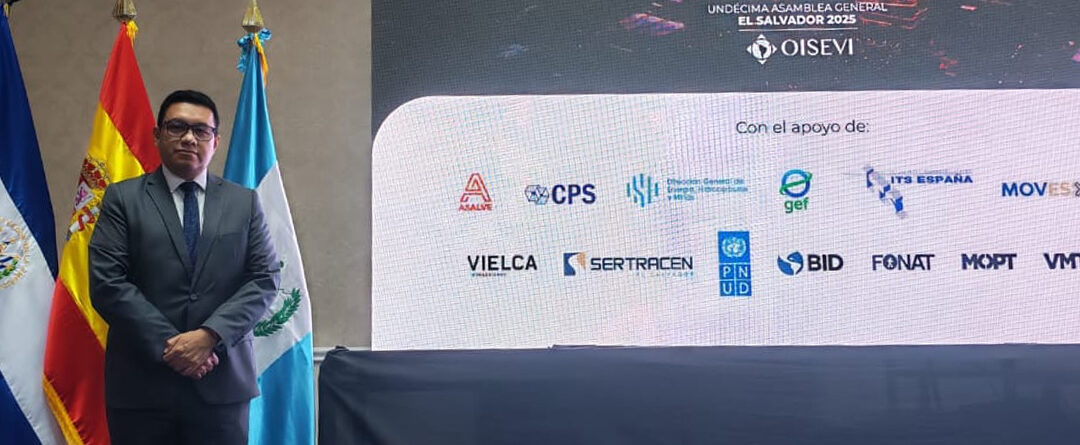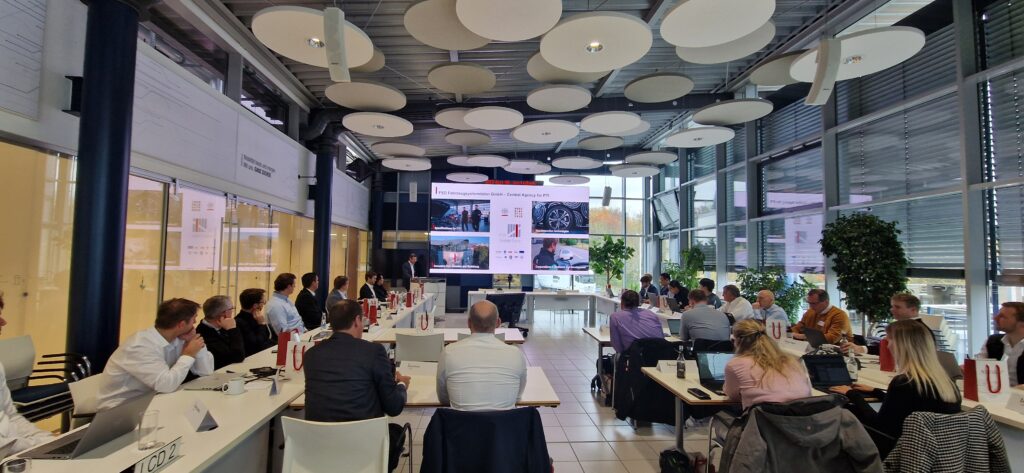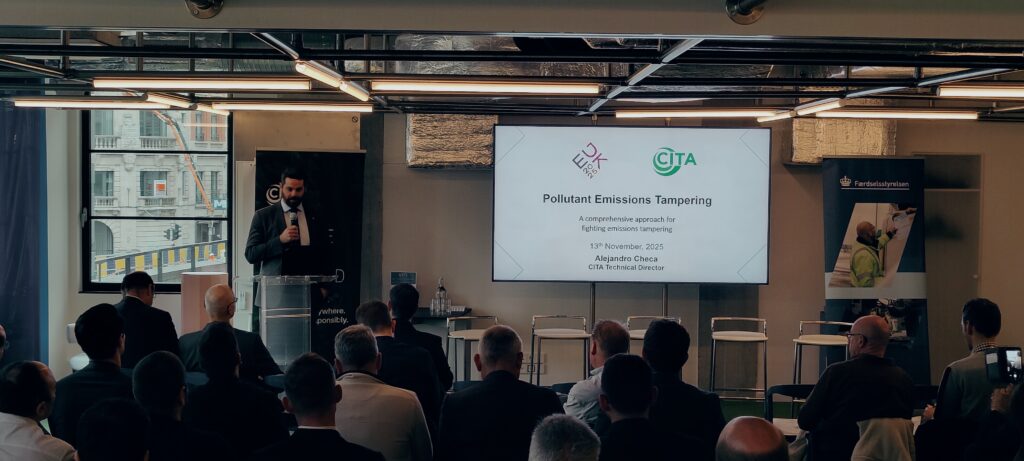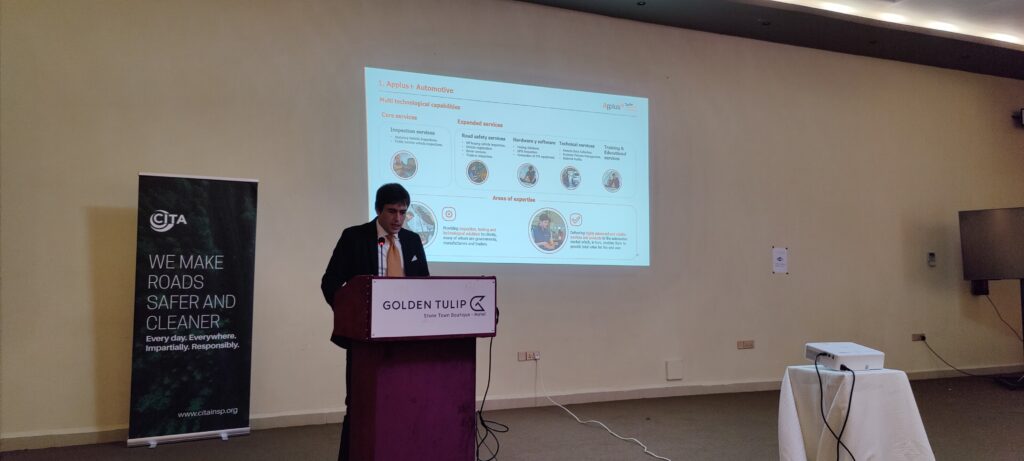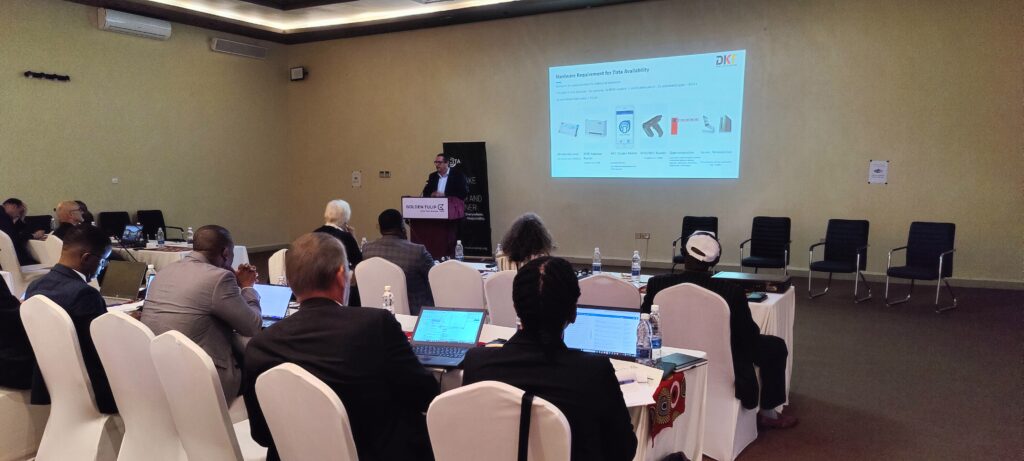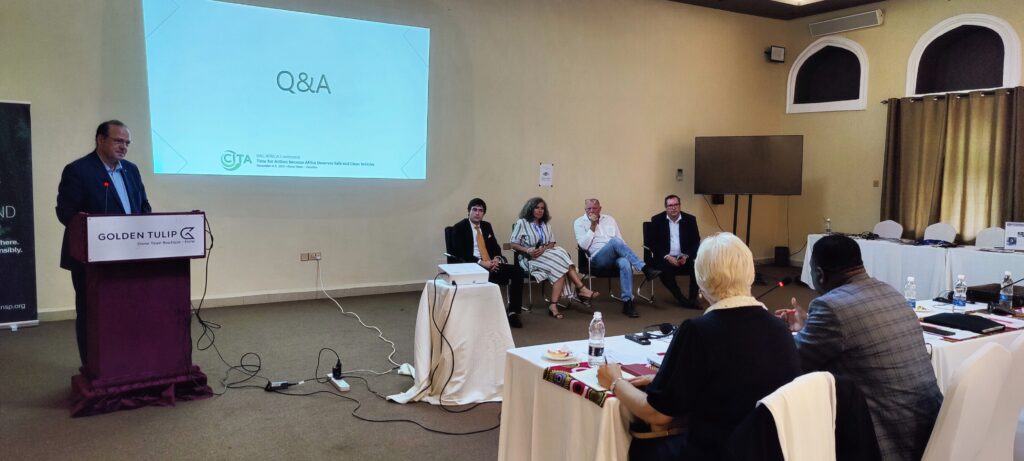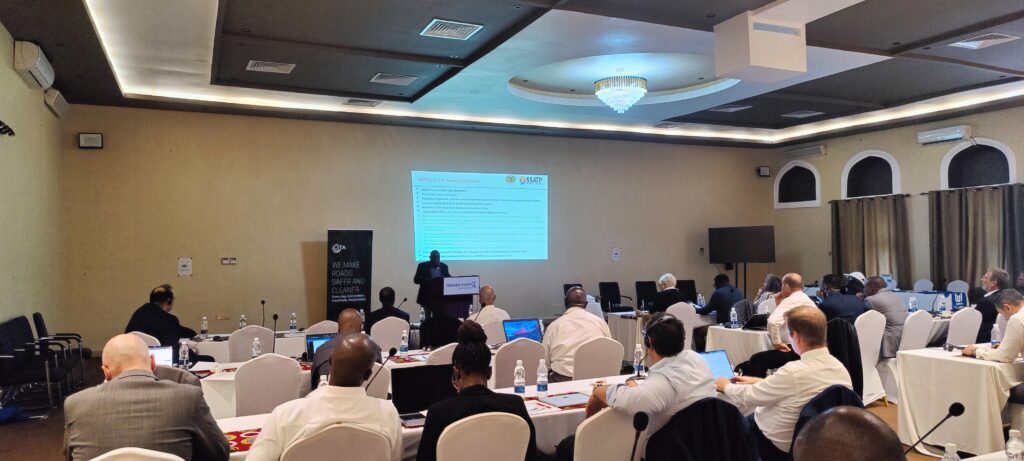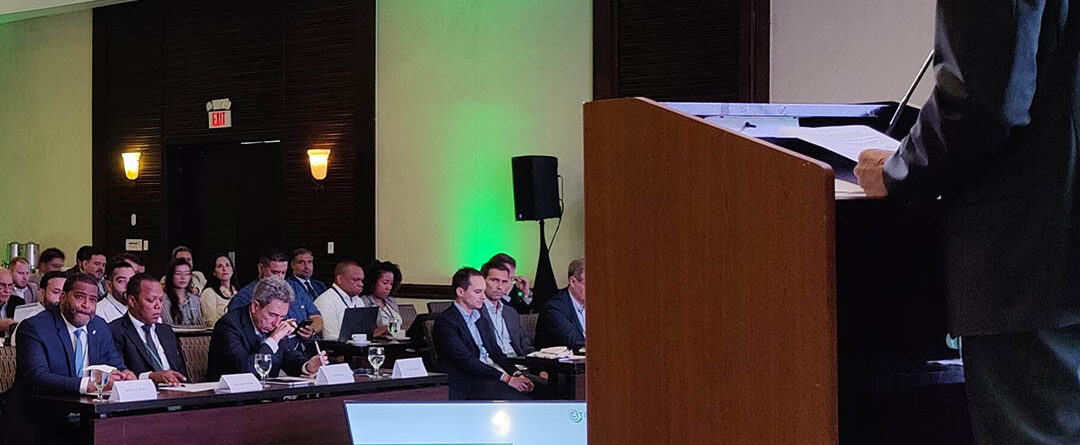CITA Participated in the AECA-ITV Congress 2025 in Madrid

CITA took part in the AECA-ITV Congress 2025, held on 19–20 November in Madrid, reinforcing its continued commitment to advancing vehicle inspection systems as pillars of road safety and environmental protection. AECA-ITV, a valued CITA member, once again brought together national and international stakeholders to address the challenges and opportunities shaping the future of PTI.
Under the motto “La movilidad del futuro pasa por la ITV”, the congress focused on how the Spanish PTI system—and its European and international counterparts—must evolve to keep pace with new mobility demands, regulatory updates, and technological progress. Representatives from Spanish public administrations, the automotive and mobility sectors, and organizations dedicated to safety and sustainability contributed to two days of high-level debate.

One of the congress’s key sessions featured Mr. Eduard Fernández, CITA Executive Director, who participated in a dedicated dialogue on the European regulatory evolution of PTI and its implications for Spain. Fernández outlined the ongoing developments within the EU framework, including revisions to inspection standards, the integration of digital inspection tools, and the growing relevance of connected and automated vehicle technologies.
He emphasized that PTI remains a proven and indispensable mechanism for reducing road fatalities and emissions, and stressed that regulatory updates must ensure that inspection procedures are capable of addressing modern vehicle systems throughout their entire lifecycle.
This session was moderated by Mr. Víctor Salvachúa Barceló (APPLUS+), leader of the CITA Task Force on Electric Vehicles and CITA Topic Area A.
CITA’s technical expertise was also reflected in exchanges involving Alejandro Checa, CITA Technical Director, who contributed to discussions on inspection methodologies, the incorporation of advanced vehicle technologies.
The congress addressed a wide range of aspects central to the transformation of PTI in Spain and beyond, including:
- upcoming regulatory changes at EU and national levels;
- updates to Spain’s ITV Inspection Procedure Manual and the Manual de Reformas;
- the challenges of new vehicle technologies and the impact of ADAS on safety inspection needs;
- the growing importance of communication campaigns to raise public awareness about the life-saving role of PTI;
- contributions from institutions such as the DGT, ENAC, UNE, and major sector associations;
- discussions on the societal value of PTI and its contribution to safer, cleaner mobility.
Participants from legislative, judicial, and executive bodies, as well as regional authorities, vehicle manufacturers, motorcycle and agricultural equipment associations, and insurance sector representatives enriched the debate with diverse perspectives.
CITA’s participation underscored the strong and constructive cooperation with AECA-ITV, whose biennial congress continues to serve as a key reference event for the PTI community in Spain.
CITA warmly congratulates AECA-ITV on the successful organization of the Congress and looks forward to continuing joint efforts in promoting excellence in vehicle inspection worldwide.



